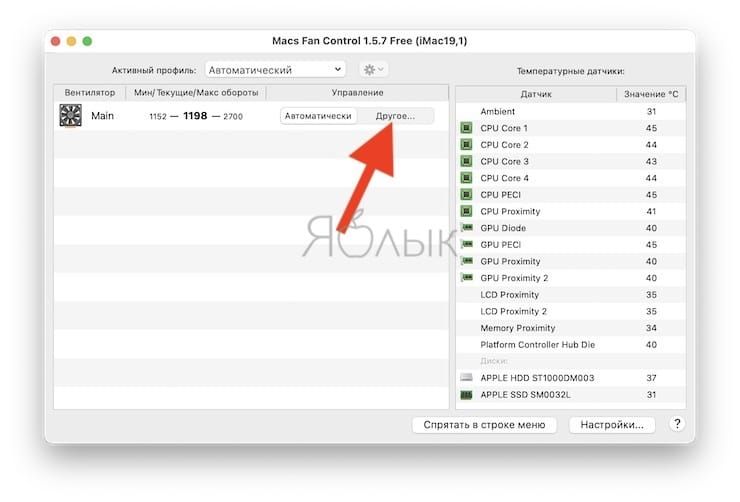

- #Gpu macs fan control how to
- #Gpu macs fan control install
- #Gpu macs fan control full
- #Gpu macs fan control software
- #Gpu macs fan control free
#Gpu macs fan control install
#Gpu macs fan control how to
Here’s how to check the CPU temperature in Mac using the Terminal: Now that the talk is over, it’s time to run through the quick steps.Įven though there are plenty of third party apps that you can use to check the CPU temperature in macOS, you don’t need to rely on them because the Terminal can help you figure it out as well. So, if the number goes above this normal level, you must think of cutting down the workload of the CPU. Long story short, the normal CPU temperature must be around 45-65 degrees for a healthy system. But even if the computer runs 10 degrees celsius above the ambient level, it’s still fairly okay.

The normal room temperature 22-24 degrees celsius is ideal for CPU temp. However, if I were to break it down in simple term I would say that the cooler the CPU temperature is, the better it is for the health of your computer.
#Gpu macs fan control free
Moreover, it can also let you figure out whether or not you are overkilling the CPU by playing some of the best free Mac games or allowing resource hogging apps to run amuck.Īs the normal CPU temperature varies from model to model, it’s a bit difficult to point out a precise number that can be the best representative for all. Maybe you are trying to benchmark your newly bought machine or maybe you would like to find out when actually the fans get going. There are multiple reasons why you may want to keep a track of the CPU temperature on macOS. Why Do You Need to Track the CPU Temperature on Your Mac? Other Apps for Viewing CPU Temperature on Mac I’m sure everyone will be fascinated at your next dinner party.Check CPU Temperature in Mac Using TerminalĬheck CPU Temperature of M1 Mac (Mac with Apple Silicon)Ĭheck CPU Temperature on macOS Using Fanny App If you want to impress your friends in conversation, you should keep track of your Mac’s fans and relay to them how fast they tend to spin during particular tasks. If that doesn’t solve your issue, consider heading to an Apple Store, or another authorized repair shop. In these cases, resetting the SMC often works-this is the low-level controller that manages thermal management and other things.
#Gpu macs fan control software
If the hardware report says everything is fine with your fan, your issue is probably a software one. But look at all the steps carefully, and only proceed if you’re completely confident you can get this done yourself. It’s not impossible, however: check out iFixIt‘s guides if you want to attempt the repair yourself. I managed to replace my own broken fan on a 2011 MacBook Pro, but the internals inside more recent Macs are a great deal less friendly for home repair. My advice: head to the Apple Store or any authorized Apple repair shop. If you have a broken fan, you need to replace it. Your Mac will test your hardware, and let you know if your fan is broken. Turn your computer off, then hold the “D” key while turning it on. Think your fan might be broken? The first thing you should do is launch Apple Diagnostics, one of the hidden startup options on your Mac. But for the occasional test, it’s nice to have control-just turn things back to automatic when you’re done. I really do not recommend disabling the automatic fan control: leaving your fans on constantly will wear them out and waste energy, and leaving them off will overheat your Mac over time. Turn the fan up and see if you can hear anything. To find out if your fans are working at all, you can click the “Custom” speed button.
#Gpu macs fan control full
The same goes if you see a low CPU temperature-say, around 45-and the fans are running at full speed. If you see high CPU temperatures-say, over 80 or 90 degrees-and that the fans aren’t running, you might have an issue. The minimum, current, and maximum speed are shown in that order. For the most part, however, we’re interested in your fan’s current speed.


 0 kommentar(er)
0 kommentar(er)
